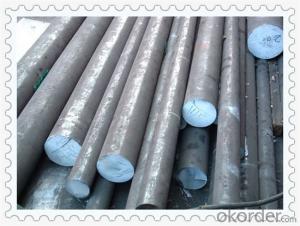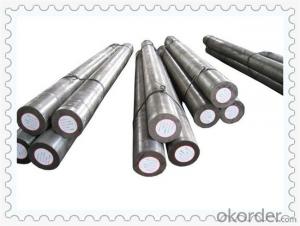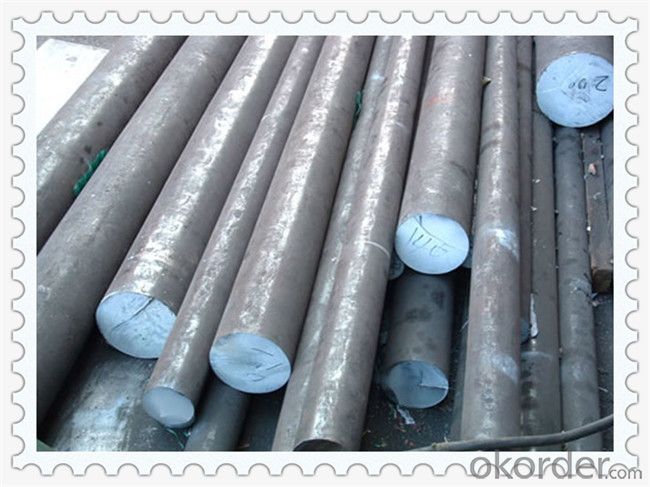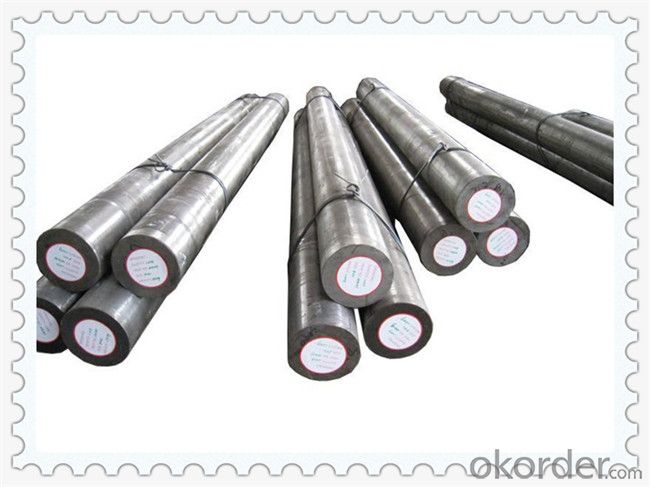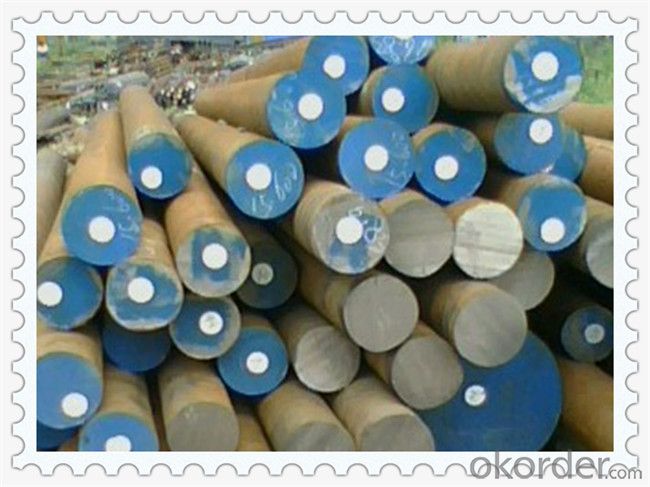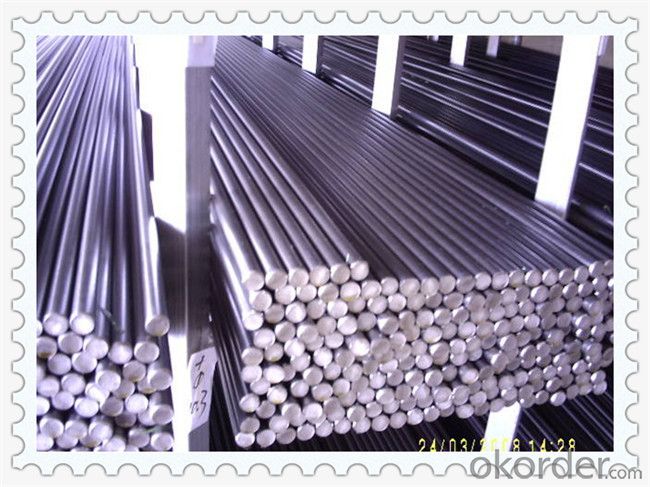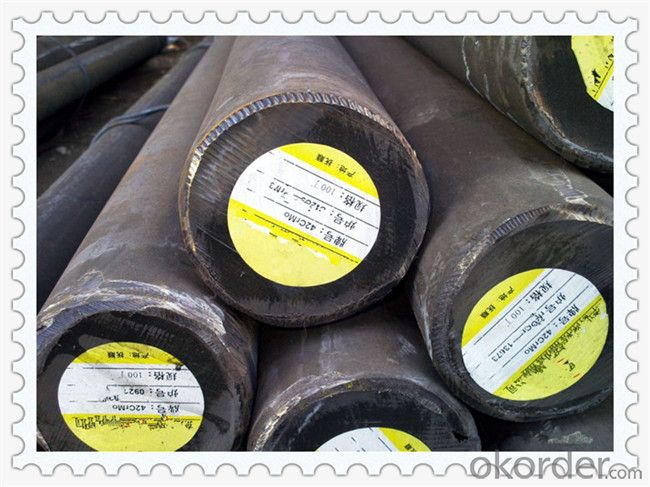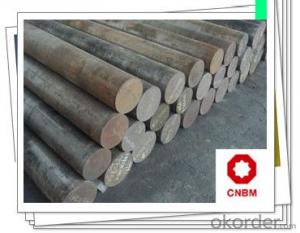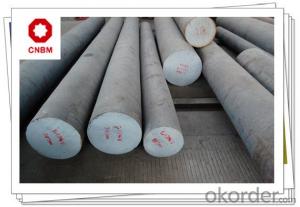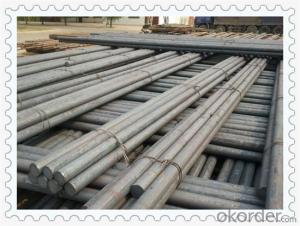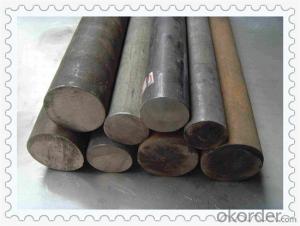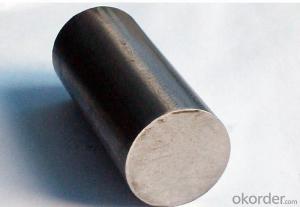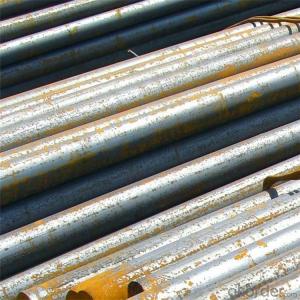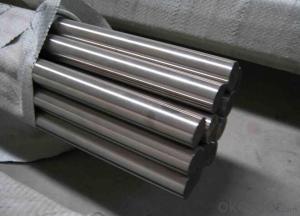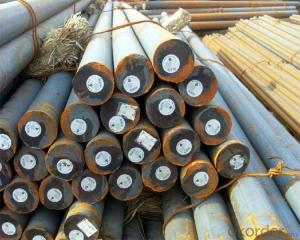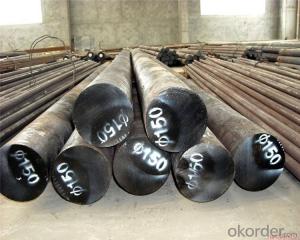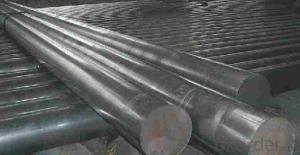30CrMo Alloy Steel Round Bars AISI 4130
- Loading Port:
- China main port
- Payment Terms:
- TT OR LC
- Min Order Qty:
- 30 m.t.
- Supply Capability:
- 10000 m.t./month
OKorder Service Pledge
OKorder Financial Service
You Might Also Like
30CrMo Alloy Steel Round Bars AISI 4130
Products Details
1. AISI 4130 alloy round bar, hot sales !!!
2. Customized size
3. Manufacturer
100% China Manufacturer aisi 4130 alloy round bar
INTRODUCTION
ITEM | aisi 4130 alloy round bar |
BRAND | TZHD |
MATERIAL | 200 SERIES & 300 SERIES & 400 SERIES |
STANDARD | GB, AISI, ASTM, ASME, EN, BS, DIN, JIS |
CERTIFICATE | BV,SGS,ISO |
SURFACE | ordinary industrial surface, or customized |
THICKNESS | customized |
WIDTH | customized |
LENGTH | 2000-6000mm, or customized |
APPLICATION | Construction and decoration, as well as all kinds of industries and manufacture |
PACKING | Regular packing or as required |
SHIPMENT | As required |
LEAD TIME | 3-20 days after deposit |
PAYMENT | T/T, L/C |
| Grade | 201 | 202 |
| 301(1Cr17Ni7) | ||
| 302(1Cr18Ni9) | 302HQ | |
| 303(YICr18Ni9) | 303Cu | |
| 304(0Cr18Ni9) | 304Cu, 304HC | |
| 304L(00Cr19Ni9) | ||
| 310(1Cr25Ni20) | ||
| 321(1Cr18Ni9Ti) | ||
| 316(0Cr17Ni12Mo2) | ||
| 316L(00Cr17Ni12Mo2) | ||
| 410(1Cr13) | ||
| 416(Y1Cr17) | ||
| 420(2Cr13) | 420F | |
| 430(1Cr17) |
Products Show
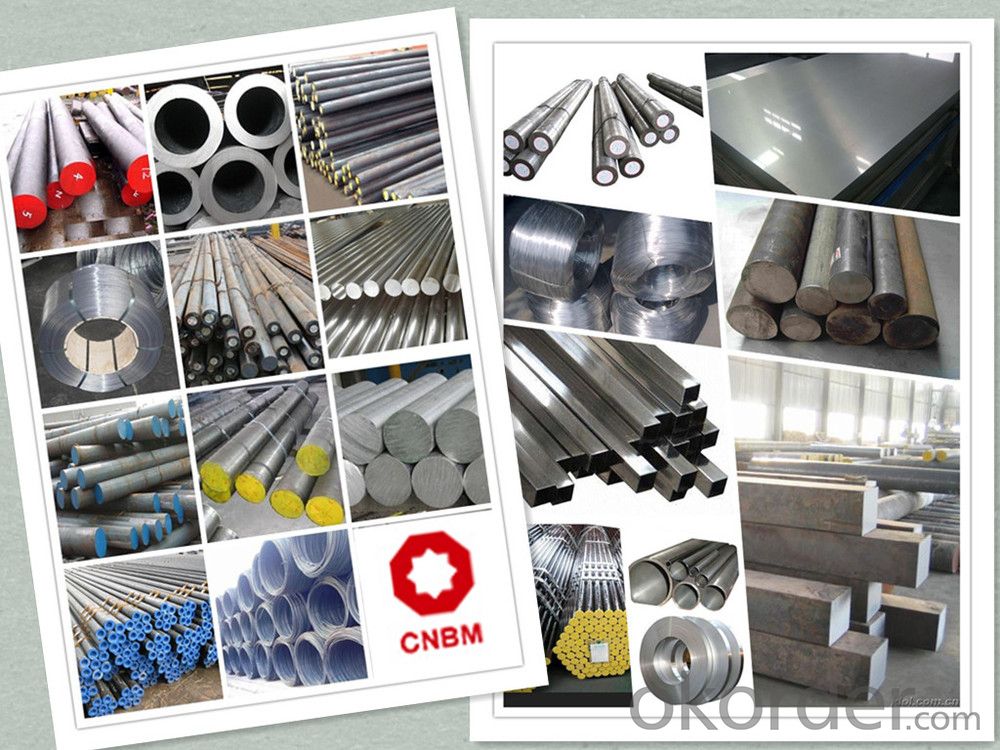
Product Overviews
| Product Name | Typical Grades | Diameter(mm) | Standard adopted |
| Carbon Steel | 20 (1020/S20C/C22) | Ø16-Ø300 |
GB/SAE/JIS/DIN
|
| 40 (1040/S40C/C40) | |||
| 45 (1045/S45C/C45) | |||
| Bearing Steel | GCr9 (51100/SUJ1) | Ø12-Ø250 | |
| GCr15 (52100/SUJ2/100Gr6) | |||
| GCr9SiMn (A485-Gr.1/SUJ3) | |||
Cr-Mo Steel | 20Cr (5120/SCr420H/20Cr4) | Ø12-Ø250 | |
| 40Cr (5140/SCr440/41Cr4) | |||
| 42CrMo(4140/SCM440/42CrMo4) | |||
| Gear Steel | 20CrNiMo | Ø16-Ø600 | |
| 20CrMn(5115/SMnC420/20MnCr5) | |||
| 20CrNiMo(8620/SNCM220/20CrMiMo2) |
Application
| Carbon Steel | Mold bottom, Plastic mold, Construction machinery parts Automobile parts, Security grills, Screens, Construction |
| Bearing Steel | Aerospace, Navigation, Nuclear energy, Chemical industry Electronic information, Petrochemical, Instrument and meter Transportation |
| Cr-Mo Steel | Mechanism & Fasteners gear, Stressed components for vehicles Engines and machines, Parts of larger cross-section |
| Gear Steel | All kinds of gears, Statically and dynamically stressed component for vehicles Engines and machine, Larger cross-section parts, Crankshafts |
Work Shop
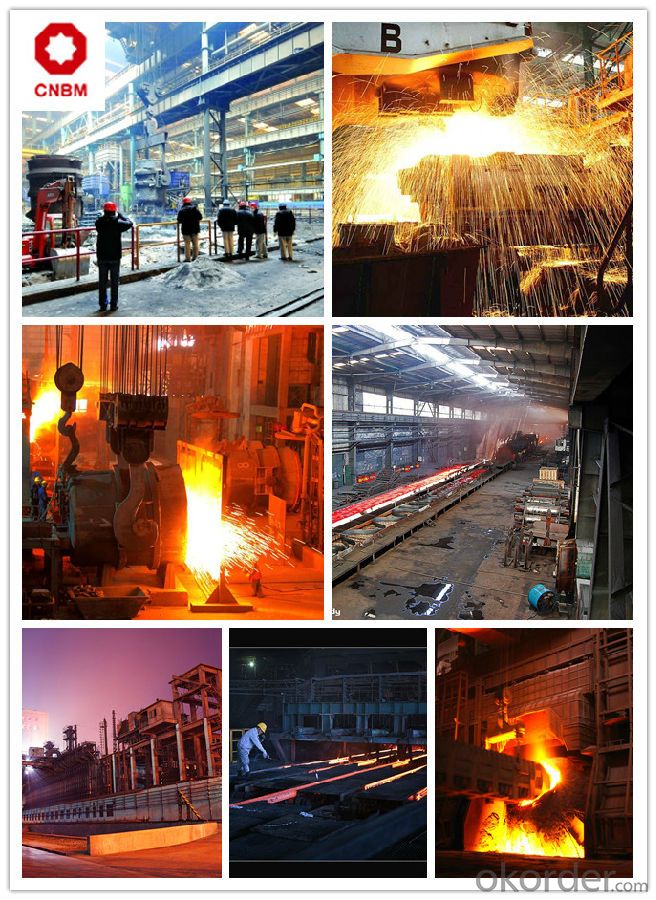
Company Information
CNBM International Corporation is the most important trading platform of CNBM group.
Whith its advantages, CNBM International are mainly concentrate on Cement, Glass, Iron and Steel, Ceramics industries and devotes herself for supplying high qulity series of refractories as well as technical consultancies and logistics solutions.

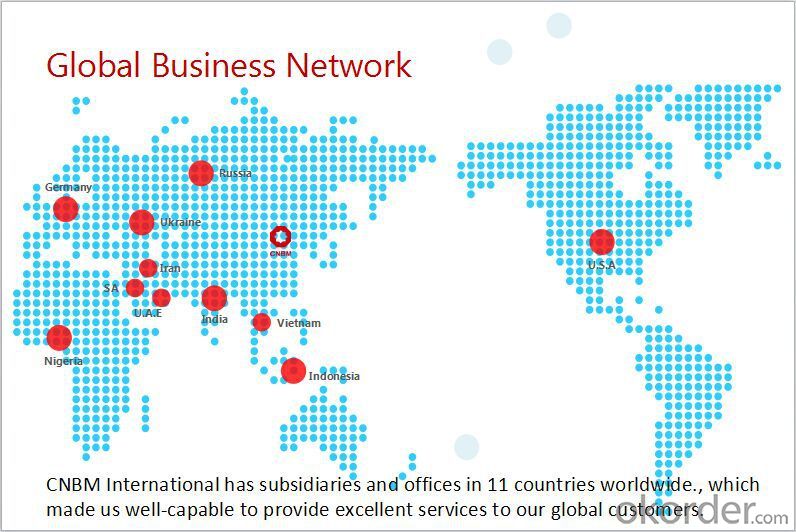
FAQ
1, Your advantages?
professional products inquiry, products knowledge train (for agents), smooth goods delivery, excellent customer solution proposale
2, Test & Certificate?
SGS test is available, customer inspection before shipping is welcome, third party inspection is no problem
3, Factory or Trading Company?
CNBM is a trading company but we have so many protocol factories and CNBM works as a trading department of these factories. Also CNBM is the holding company of many factories.
4, Payment Terms?
30% TT as deposit and 70% before delivery.
Irrevocable L/C at sight.
5, Trading Terms?
EXW, FOB, CIF, FFR, CNF
6, After-sale Service?
CNBM provides the services and support you need for every step of our cooperation. We're the business partner you can trust.
For any problem, please kindly contact us at any your convenient time.
We'll reply you in our first priority within 24 hours.
Packaging & Delivery
1, Packaging: seaworthy package or as required
2, Delivery: 35-45 days or based on quantity
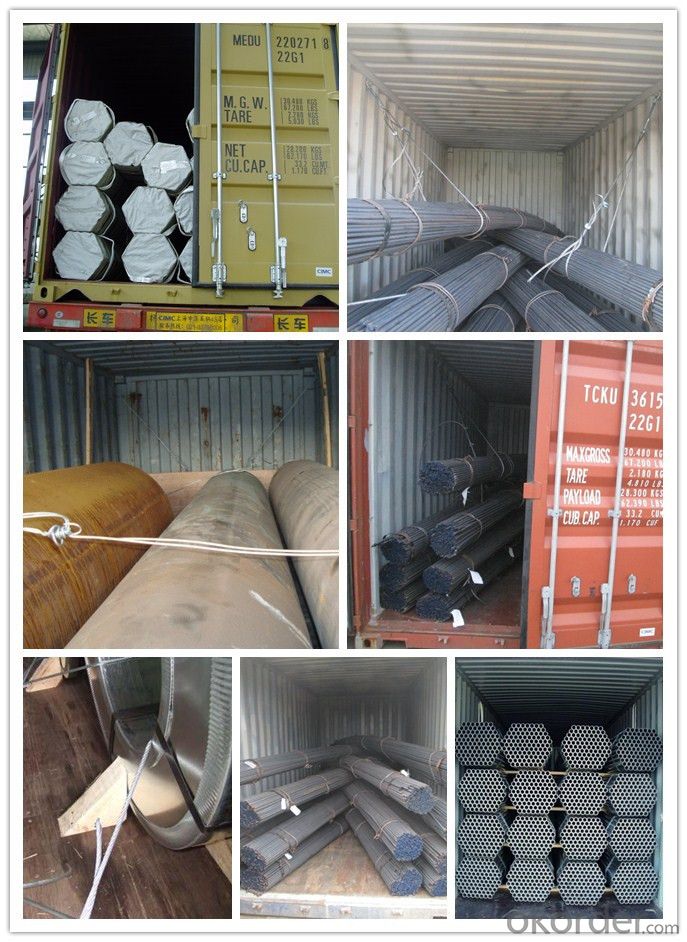
- Q: What are the different types of steel round bar alloys used in the automotive industry?
- In the automotive industry, there are several types of steel round bar alloys used due to their various properties and applications. 1. Carbon Steel: Carbon steel round bars are widely used as they offer good strength and toughness. They are used in various automotive components such as axles, crankshafts, and gears. 2. Alloy Steel: Alloy steel round bars contain additional alloying elements such as chromium, nickel, or molybdenum. These alloys enhance the mechanical properties of the steel, making it stronger and more durable. Alloy steel round bars are commonly used in automotive applications like suspension components, drive shafts, and steering components. 3. Stainless Steel: Stainless steel round bars are highly resistant to corrosion, making them suitable for automotive applications that require durability in harsh environments. They are commonly used in exhaust systems, fuel tanks, and body parts. 4. Tool Steel: Tool steel round bars have high hardness, wear resistance, and toughness. They are mainly used in the production of automotive tools and dies, such as punches, dies, and cutting tools. 5. Bearing Steel: Bearing steel round bars are specifically designed to provide excellent wear resistance and high load-carrying capacity in automotive bearings. These bars have a high level of hardness and are heat-treated to ensure optimal performance. 6. Spring Steel: Spring steel round bars are used in automotive suspension systems and other applications that require excellent elasticity and fatigue resistance. These bars can withstand repeated stress and maintain their shape, making them ideal for automotive springs and stabilizer bars. It's important to note that the specific choice of steel alloy depends on the desired properties, performance requirements, and cost considerations for each automotive component.
- Q: What are the different types of surface defects that can occur in steel round bars?
- There are several types of surface defects that can occur in steel round bars. Some of the most common defects include: 1. Scratches: These are shallow grooves or marks on the surface of the round bar caused by friction or contact with sharp objects during handling or transport. 2. Pitting: Pits are small, localized cavities or depressions on the surface of the round bar caused by corrosion or exposure to harsh environments. Pitting can lead to further corrosion if not addressed. 3. Scale: Scale refers to the thin layer of oxide or other impurities that can form on the surface of steel round bars during the manufacturing process. It can affect the appearance and quality of the bar but is often removed during subsequent processing or cleaning. 4. Scabs: Scabs are irregularly shaped protrusions or raised areas on the surface of the round bar caused by solidification or cooling issues during the casting process. They can reduce the strength and integrity of the bar if not properly addressed. 5. Roll marks: These are elongated depressions or ridges on the surface of the round bar caused by uneven or improper rolling during the manufacturing process. Roll marks can affect the dimensional accuracy of the bar and may require additional processing or grinding to remove. 6. Laminations: Laminations are internal defects that can sometimes be visible on the surface of the round bar. They are caused by improper bonding or separation of layers during the steelmaking process. Laminations can weaken the bar and reduce its load-bearing capacity. 7. Inclusions: Inclusions are non-metallic particles or impurities that can become trapped in the steel during the manufacturing process. They can appear as dark spots or irregularities on the surface of the round bar and may affect its mechanical properties. It is important to note that these surface defects can vary in severity and impact on the performance of the steel round bar. Manufacturers and quality control personnel employ various inspection techniques to identify and mitigate these defects to ensure the quality and reliability of the final product.
- Q: What are the advantages of using zinc-alloy steel round bars?
- One of the advantages of using zinc-alloy steel round bars is their high corrosion resistance. The zinc coating acts as a protective barrier, preventing rust and corrosion, which makes these bars suitable for outdoor applications and environments with high humidity. Additionally, zinc-alloy steel round bars have excellent strength and durability, making them ideal for structural and load-bearing purposes. Furthermore, the zinc coating provides enhanced aesthetics, offering a polished and visually appealing finish. Overall, the advantages of using zinc-alloy steel round bars include corrosion resistance, strength, durability, and improved appearance.
- Q: What are the cost considerations for steel round bars?
- The cost considerations for steel round bars typically include factors such as the grade and quality of steel used, the diameter and length of the bar, the quantity being purchased, and the current market conditions. Additionally, any additional processing, such as cutting or heat treatment, may also affect the overall cost.
- Q: What is the difference between a seamless and a turned steel round bar?
- The main difference between a seamless and a turned steel round bar lies in their manufacturing process and resulting characteristics. A seamless steel round bar is produced by piercing a solid steel billet, typically through a hot rolling process. This creates a hollow tube-like structure, which is then further elongated and shaped into the desired round bar form. The seamless nature of this bar means that there are no welded joints or seams along its length, resulting in a smooth and continuous surface. This manufacturing method enhances the overall strength and durability of the round bar. On the other hand, a turned steel round bar starts as a solid steel bar, commonly obtained through casting or hot rolling. The bar is then subjected to a machining process known as turning, where it is rotated against a cutting tool to remove material and achieve the desired dimensions and shape. This turning process creates a round bar with a smooth and polished surface. However, unlike a seamless round bar, a turned bar may have mill marks or slight imperfections due to the machining process. In terms of applications, seamless steel round bars are often preferred in industries that require high strength and reliability, such as construction, automotive, and oil and gas. Their uniform structure and absence of welds make them highly resistant to cracking and failure under heavy loads or extreme conditions. Turned steel round bars, on the other hand, are commonly used in applications where a smooth surface finish is desired, such as in decorative pieces or precision components for machinery. Overall, the main difference between a seamless and a turned steel round bar lies in their manufacturing process and resulting characteristics. While both provide a smooth surface finish, seamless round bars offer enhanced strength and reliability due to their seamless structure, whereas turned round bars are often chosen for their precise dimensions and aesthetic qualities.
- Q: What are the factors to consider when selecting a steel round bar for a specific application?
- When selecting a steel round bar for a specific application, there are several important factors to consider. 1. Material Grade: The first factor to consider is the material grade of the steel round bar. Different grades of steel have varying properties, such as strength, hardness, and corrosion resistance. It is crucial to choose a material grade that is suitable for the specific application's requirements. 2. Mechanical Properties: The mechanical properties of the steel round bar, such as tensile strength, yield strength, and elongation, need to be evaluated. These properties determine the bar's ability to withstand forces and deformations under load. The selected steel round bar should have mechanical properties that match the demands of the application. 3. Size and Dimensions: The size and dimensions of the steel round bar are crucial considerations. This includes the diameter, length, and tolerance requirements. The dimensions should be chosen based on the application's structural requirements and the intended load-bearing capacity of the bar. 4. Surface Finish: The surface finish of the steel round bar is significant, especially for applications involving aesthetics or contact with other components. Considerations such as smoothness, roughness, and the presence of any coatings or treatments should be taken into account. 5. Corrosion Resistance: Depending on the application's environment, it is essential to select a steel round bar with adequate corrosion resistance. Factors such as exposure to moisture, chemicals, or extreme temperatures can affect the bar's longevity and performance. Stainless steel or corrosion-resistant coatings can be chosen to enhance the bar's resistance to corrosion. 6. Machinability: If the steel round bar needs to be machined or fabricated into a specific shape, its machinability must be considered. Some steel grades are easier to machine, while others may require more advanced tools or techniques. The machinability of the selected bar should align with the desired manufacturing processes. 7. Cost: Finally, the cost of the steel round bar should be considered. Different material grades and specifications come with varying price points. It is important to balance the required properties and performance with the project's budget constraints. Overall, selecting a steel round bar for a specific application requires careful evaluation of the material grade, mechanical properties, size, surface finish, corrosion resistance, machinability, and cost. By considering these factors, one can ensure that the chosen steel round bar will meet the application's requirements and deliver optimal performance.
- Q: What is the tolerance for diameter and length of steel round bars?
- The tolerance of steel round bars' diameter and length may vary depending on industry standards and requirements. Typically, diameter tolerances are specified as a deviation, either positive or negative, from the nominal diameter. For example, a tolerance of +/- 0.005 inches implies that the actual diameter can deviate by up to 0.005 inches from the nominal diameter. Similarly, length tolerances are also expressed as a deviation, either positive or negative, from the nominal length. These tolerances can be indicated as a percentage or an absolute value. For instance, a tolerance of +/- 1% or +/- 0.5 inches means that the actual length can deviate by up to 1% of the nominal length or 0.5 inches, whichever is greater. It's worth noting that different industries may have diverse tolerance requirements depending on the specific applications and intended use of steel round bars. Hence, it is vital to refer to the relevant industry standards or consult with the manufacturer or supplier to determine the precise tolerance specifications for diameter and length in a specific context.
- Q: What are the advantages of using heat-resistant steel round bars?
- The advantages of using heat-resistant steel round bars include high thermal stability, excellent resistance to oxidation and corrosion at elevated temperatures, superior strength and toughness, and the ability to retain their mechanical properties even under extreme heat conditions. Heat-resistant steel round bars also have good dimensional stability, making them suitable for applications in high-temperature environments such as furnace components, heat exchangers, and power generation equipment.
- Q: 12 of the diameter of the round steel can be M12 out of the thread is not
- It depends on your material straight straight, generally should be right, you check the metric thread specification table, there is large size can be much, I think you are a little round a little better, so that you may get the car, do not appear to have a side material shortage phenomenon
- Q: What is the difference between a ground and a polished steel round bar?
- The surface finish and appearance of a ground steel round bar and a polished steel round bar differentiate them from each other. To achieve a smooth and even surface finish, a grinding process is applied to a ground steel round bar. This involves the use of a grinding wheel or belt to remove any surface imperfections like roughness or irregularities. Ground steel round bars are commonly employed in applications that require precision and tight tolerances, such as in machinery or automotive components. On the contrary, a polishing process is used to create a high shine and reflective surface on a polished steel round bar. This process involves the use of abrasive materials like polishing compounds or buffing wheels. It enhances the aesthetics of the steel bar, making it visually appealing. Polished steel round bars find frequent use in decorative applications, architectural projects, or industries where a visually pleasing appearance is desired, such as jewelry or interior design. In conclusion, the surface finish is the key differentiating factor between ground and polished steel round bars. Ground steel round bars prioritize precision and smoothness, whereas polished steel round bars prioritize a shiny and reflective appearance.
Send your message to us
30CrMo Alloy Steel Round Bars AISI 4130
- Loading Port:
- China main port
- Payment Terms:
- TT OR LC
- Min Order Qty:
- 30 m.t.
- Supply Capability:
- 10000 m.t./month
OKorder Service Pledge
OKorder Financial Service
Similar products
Hot products
Hot Searches
Related keywords
